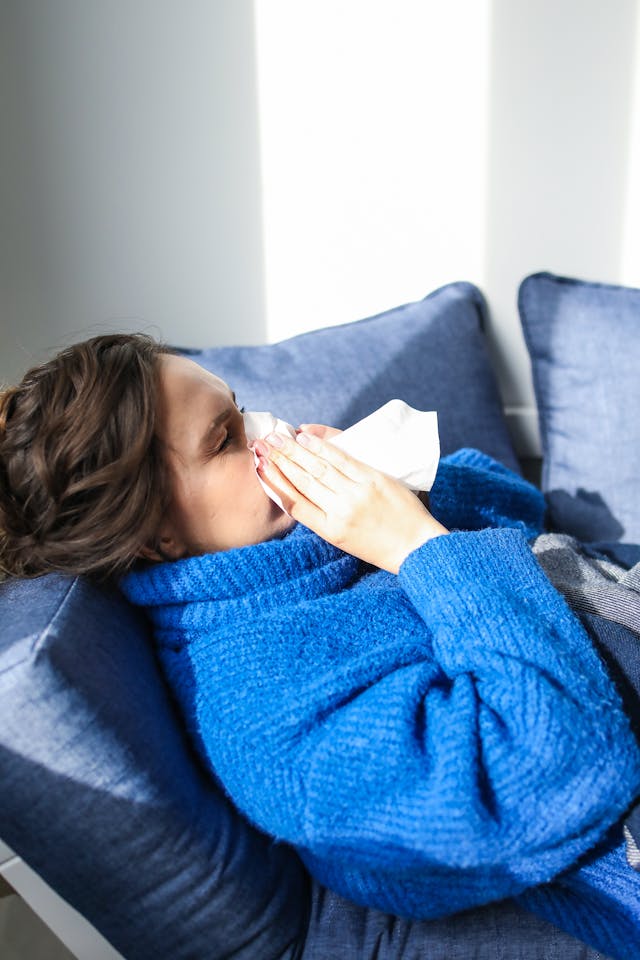Call Today to Schedule an Appointment: 212-319-5282
The Role of Immunotherapy in Treating Allergies and Asthma
 Understanding the role of immunotherapy in treating allergies and asthma is key to long-term relief — especially for those who suffer from persistent symptoms that don’t fully respond to medications. In New York City, where environmental allergens and air pollutants are part of everyday life, immunotherapy offers a highly effective solution for managing chronic allergic conditions and allergic asthma.
Understanding the role of immunotherapy in treating allergies and asthma is key to long-term relief — especially for those who suffer from persistent symptoms that don’t fully respond to medications. In New York City, where environmental allergens and air pollutants are part of everyday life, immunotherapy offers a highly effective solution for managing chronic allergic conditions and allergic asthma.
This guide explores how immunotherapy works, who it benefits most, and what to expect during treatment.
What Is Immunotherapy?
Immunotherapy is a long-term treatment designed to reduce the body’s sensitivity to allergens. By gradually introducing small, controlled doses of the allergen over time, the immune system becomes less reactive — leading to fewer symptoms and better control of allergic conditions.
There are two main types of immunotherapy:
- Subcutaneous Immunotherapy (SCIT): Commonly known as allergy shots, this method involves injecting small amounts of allergens under the skin, typically in the arm.
- Sublingual Immunotherapy (SLIT): Allergy drops or tablets are placed under the tongue and absorbed into the bloodstream.
How Immunotherapy Helps Allergies and Asthma
Allergies and asthma are often closely linked. Allergens like pollen, dust mites, mold, and pet dander can trigger asthma symptoms in people with allergic asthma. Immunotherapy treats the root cause of allergic reactions, which in turn helps manage asthma symptoms more effectively.
Here’s how it works:
- Reduces allergic inflammation: Immunotherapy retrains your immune system to become less reactive to allergens.
- Decreases medication dependence: Over time, many patients need fewer antihistamines, nasal sprays, or asthma inhalers.
- Improves long-term control: Unlike medications that only relieve symptoms, immunotherapy modifies the disease itself.
- Lowers risk of new allergies: Starting immunotherapy early may help prevent the development of additional allergies.
Who Is a Good Candidate for Immunotherapy?
Immunotherapy may be recommended if you:
- Have moderate to severe allergies that interfere with daily life
- Don’t get sufficient relief from medications alone
- Want to reduce long-term dependence on allergy and asthma medications
- Have allergic asthma triggered by specific allergens
- Can commit to a consistent treatment schedule
Both adults and children (usually age 5 and older) can benefit from immunotherapy when prescribed and monitored by a specialist.
What to Expect During Treatment
Subcutaneous Immunotherapy (Allergy Shots)
- Build-Up Phase: Injections are given once or twice a week for 3–6 months, with increasing doses of allergens.
- Maintenance Phase: Once the effective dose is reached, injections are spaced out to every 2–4 weeks and continue for 3–5 years.
- Monitoring: Patients remain in the clinic for about 30 minutes after each shot to monitor for reactions.
Sublingual Immunotherapy (Allergy Drops/Tablets)
- Daily Dosing: You take allergy drops or tablets at home under the tongue daily.
- Convenience: Ideal for those who prefer a non-invasive method or can’t commit to frequent clinic visits.
- Effectiveness: SLIT is FDA-approved for certain allergens, including grass, ragweed, and dust mites.
Are There Side Effects?
Immunotherapy is generally safe when administered under medical supervision. Mild side effects may include:
- Redness or swelling at the injection site
- Itchy mouth or throat (for SLIT)
Severe reactions (like anaphylaxis) are rare and typically occur during the build-up phase. That’s why it’s important to receive injections in a medical setting with observation afterward.
Long-Term Benefits of Immunotherapy
The most rewarding aspect of immunotherapy is its potential to provide long-term remission from allergies and improved asthma control. Many patients experience:
- Lasting relief even after treatment ends
- Fewer or no asthma attacks
- Improved sleep, focus, and quality of life
- Reduced emergency room visits or steroid use
Explore Your Immunotherapy Options in NYC
If you’re dealing with persistent allergies or allergic asthma, immunotherapy might be the long-term solution you’ve been looking for. To find out if you’re a candidate, schedule a consultation with Dr. Boyan Hadjiev at:
Allergy, Asthma and Sinusitis P.C
Boyan Hadjiev, MD
30 East 40th Street
Suite 1200
New York, NY 10016
212-319-5282
Discover how the role of immunotherapy in treating allergies and asthma can help you breathe easier, live better, and reduce your need for daily medications.
Serving all of New York City and the Tri State Area including Zip Codes: Top Allergist NYC Midtown, Chelsea and Clinton: 10001, 10011, 10018, 10019, 10020, 10036 | Gramercy Park and Murray Hill: 10010, 10016, 10017, 10022 | Greenwich Village and Soho: 10012, 10013, 10014 | Lower Manhattan: 10004, 10005, 10006, 10007, 10038, 10280 | Lower East Side: 10002, 10003, 10009 | Upper East Side: 10021, 10028, 10044, 10128 | Upper West Side: 10023, 10024, 10025
